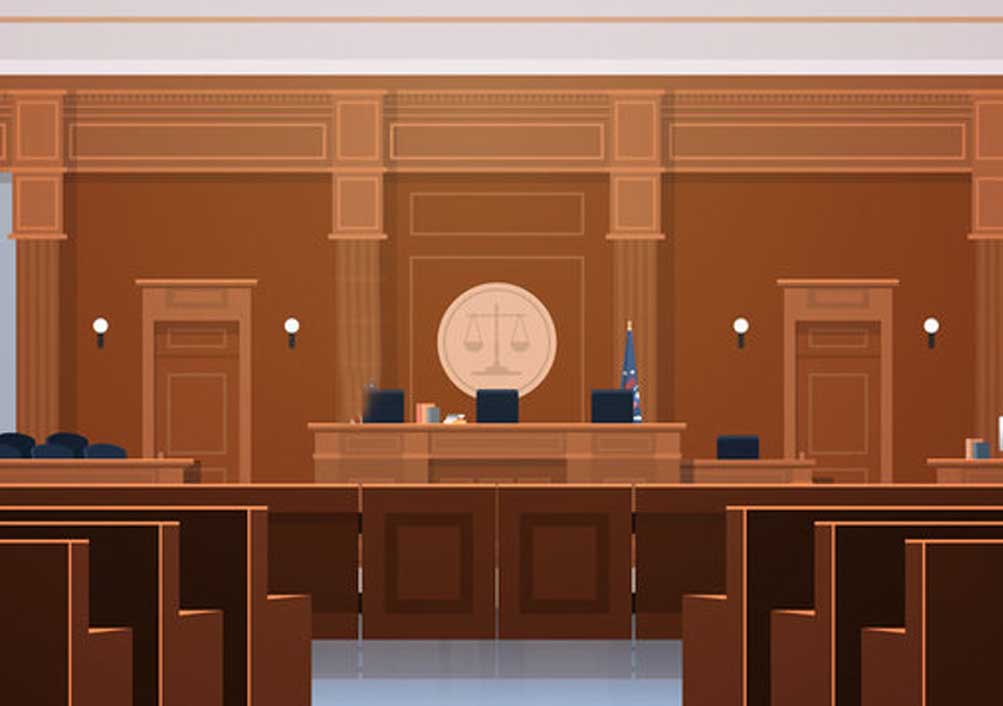In CRIMINAL APPEAL NO.150 OF 2020- SC- Evidentiary value of medical witness is very crucial to corroborate case of prosecution and same may establish certain facts, quite apart from other oral evidence: SC Justices N.V. Ramana, Krishna Murari & Hima Kohli [22-04-2022]

Read Judgment: ANUJ SINGH @ RAMANUJ SINGH @ SETH SINGH AND ORS v. THE STATE OF BIHAR
Mansimran Kaur
New Delhi, April 22, 2022: Reiterating that the testimony of a witness in a criminal trial cannot be discarded merely because of minor contradictions or omission, the Apex Court has dismissed an appeal challenging the common judgment of the Patna High Court affirming the conviction of the appellants.
The Bench of Chief Justice N.V. Ramana, Justice Krishna Murari and Justice Hima Kohli while pursuing the present appeal said, “The evidentiary value of a medical witness is very crucial to corroborate the case of prosecution and it is not merely a check upon testimony of eyewitnesses, it is also independent testimony, because it may establish certain facts, quite apart from the other oral evidence. It has been reiterated by this court that the medical evidence adduced by the prosecution has great corroborative value as it proves that the injuries could have been caused in the manner alleged.”
The present appeal was preferred against a common judgment dated January 16, 2018 passed by the High Court of Patna whereby the decision of the Trial Court was modified. The appellants were convicted by the Trial Court under Section 307 read with Section 304 of IPC and further under Section 27 of the Arms Act. The High Court however, converted their conviction under Section 307 read with Section 34 of IPC to Section 324 of IPC and awarded two years of rigorous imprisonment with a fine of Rs.5,000/- and three months simple imprisonment in case of default. In addition, the conviction of the Trial Court under Section 27 of the Arms Act was upheld by the Court.
Aggrieved by the same, the present appeals were preferred before the Apex Court.
Factual background of the instant case was that one Kumar Nandan, the informant in the present case gave his statement accusing the appellant and the other accused of attacking him. The appellant and the co- accused were alleged to have shot the informant on his left leg and hand. The other accused were alleged of assaulting him with a spear and lathis. The dispute was with respect to repairing a wall on the land that the informant claimed to be his. FIR was registered on the same day.
After thorough investigation, the police filed the chargesheet against the two appellants. Charges were framed under Section 307 IPC read with Section 27 of the Arms Act. The other two accused were charged under Section 307 read with Section 34 of IPC.
The Trial Court after taking into consideration all the material on record convicted the appellants. Aggrieved by the same, the appellants filed two sets of appeals assailing the conviction and sentence passed by the Trial Court.
The High Court decided both the appeals by way of common judgment dated January 16, 2018. Notably, the appeals filed by two other accused Praveen Sing and Arvind Singh were allowed by the High Court and their conviction and sentence was set aside . However, the appeal of the other two appellants was partly allowed by observing that they should be convicted under Section 307 of IPC read with Section 324 of IPC in lieu of Section 34 . The imprisonment period was also reduced to two years from five. The conviction under the Arms Act under Section 27 was upheld.
It was this impugned judgment of the High Court that was challenged by the appellants. The Counsel for the appellant strenuously contended that there was no material on record to show that there was recovery of any gun or seizure memo showing recovery of any bullet or pellets from the spot. It was also submitted that the registration of FIR was done on October 10, 1999, however the same was sent to the Magistrate on October 12, 1999 and since there was no explanation for this delay, the same consequently weakened the prosecution story. It was further submitted that there were contradictions in the statements of the prosecution witnesses.
The Apex Court was considering if the conviction of the appellants under Section 324 IPC and under Section 27 of the Arms Act was sustainable. Pursuant to the same, the Court reiterated that the testimony of a witness in a criminal trial cannot be discarded merely because of minor contradictions or omission. Reliance was placed on the judgment of this Court in Narayan Chetanram Chaudhary & Anr. Vs. State of Maharashtra wherein this Court while considering the issue of contradictions in the testimony held that only contradictions in material particulars and not minor contradictions can be a ground to discredit the testimony of the witnesses.
In the instant case, the Court took into consideration the medical evidence produced by the doctor who examined the appellant and clearly stated the alleged injuries on the informant were caused by the firearms. Further to establish a case under Section 324 IPC, the Court reproduced the same to determine if conditions mentioned under the Section were met in the present case. The Court observed, that the case under the said Section was established, as the informant was caused injury voluntarily by firearm, which was certainly a dangerous weapon.
Accordingly, the impugned judgment of the High Court was upheld, by confirming the conviction of the appellants under Section 324 IPC and Section 27 of the Arms Act. Thus, the appeals were held to be merciless and were dismissed.
Sign up for our weekly newsletter to stay up to date on our product, events featured blog, special offer and all of the exciting things that take place here at Legitquest.




Add a Comment